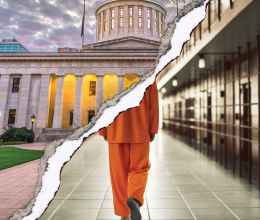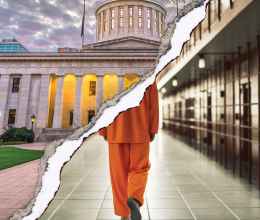Last week, I attended the Drug Policy Alliance’s International Drug Policy Reform Conference held in Denver, Colorado. The Drug Policy Alliance and its talented staff did a masterful job of putting together a conference that gave a voice to many people impacted by the War on Drugs while highlighting the multitude of reasons why this destructive war must end.
The mood among the more than 1,000 who attended was a joyous one. People from all over the world convened to celebrate the recent legalization of marijuana in Washington and Colorado, and the halls were buzzing with news that the country of Uruguay is about to go where no country has gone before—legalizing the growth, cultivation, and distribution of marijuana.
Affirmation was expressed when people discussed the results of a recent Gallup Poll showing that 58% of American’s support the legalization of marijuana. The ACLU’s recent report, Marijuana in Black and White, which exposed biased policing in marijuana arrests in cities, suburbs, and rural communities around the United States, was also a major topic of discussion.
Prior to breaking off into smaller sessions, conference participants participated in a text campaign calling on President Obama to pardon people incarcerated in federal prisons for drug convictions. This was not an idle crowd!
In the smaller sessions that followed, we heard from law makers, hip hop artists, Tea Partiers, lawyers, formerly incarcerated people, civil libertarians, harm reduction advocates, black nationalists, drug users, scientists, entrepreneurs, children of incarcerated parents, conservatives, police officers, former homeless people, baby boomers, college students, immigrants, and parents to name few.
Throughout the conference, I met people who came to the movement for many different reasons. I spoke with a commercial real estate broker who became a drug reform advocate after finding relief from the painful muscle stiffness he experiences from multiple sclerosis.
I had lunch with three women who were sentenced to prison instead of drug treatment for their addictions and then permanently lost custody of their children during their incarceration.
I spent some time with a formerly incarcerated man who supports safe needle exchange sites because two of his brothers died of HIV/AIDS-related illnesses.
I heard from a prosecutor who is tired of wasting public dollars on incarcerating people who don’t deserve to be criminalized.
I spoke with an immigrant rights advocate who had the unfortunate task of informing a mother that her daughter had hanged herself in an immigration detention facility following a minor conviction for drug possession.
I heard from a neuroscientist who is debunking drug war propaganda with science, and I heard from people who believe that the government has no right to tell people what they can put in their own bodies.
Regardless of what brought them to the realization that this war must end, they are all collectively committed to the movement.
Like many others, I believe that the War on Drugs is a tool used to marginalize and perpetuate human suffering.
The War on Drugs has led directly to the mass criminalization of people of color. It has taken parents from their children and children from their parents.
This war has made racial profiling and prison overcrowding an everyday occurrence, and it supports an entire sub-economy that traffics in human lives for profit and for votes.
It is an affront to constitutional, civil, and human rights.
The DPA conference closed with remarks from many committed advocates, but two in particular struck me.
The first was Dorothy Gaines who spent 6 years in federal prison because drug defendants lied about her activities in exchange for a reduction in their own sentences. During Dorothy’s incarceration, her then 9-year-old son attempted suicide, and her daughter was molested. Dorothy was granted clemency by President Clinton in 2000. Her son who began using drugs following her unjust imprisonment is now serving a life sentence. Dorothy brought the room to tears when she said that she wasn’t sure if she would make it to the next DPA conference because the drug war had hurt her and her family so much that she wasn’t sure if her heart could take much more.
The second was Ira Glasser, former national ACLU executive director and current board president of the Drug Policy Alliance, who encouraged and cautioned the crowd with a quote from Winston Churchill who, after a major battle in World War II, said.
“Now this is not the end. It is not even the beginning of the end. But it is, perhaps, the end of the beginning.”
The War on Drugs is America’s weapon of mass destruction, and the fight is far from over. You don’t have to take my word for it; take a look at the facts.
In the U.S:
- 5 million people are currently under correction control;
- 2.3 million people are incarcerated;
- 1.6 million people are arrested, incarcerated, placed under criminal justice supervision, and/or deported each year for a drug law violation.
These numbers are stark, but they do not deter the growing army of justice warriors around the world working daily to bring the war to an end with persistence, facts, and consciousness. The ACLU of Ohio is a proud member of this army.







